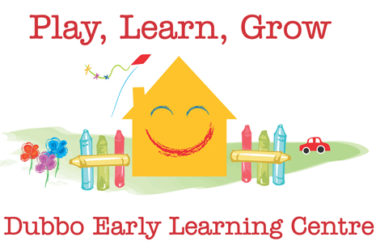
Now we are going to go through a process of designing the best fun based team
What does a fun team look like?
List everything you think makes a fun team of educators.
_____________________________________________________
_____________________________________________________
_____________________________________________________
_____________________________________________________
_____________________________________________________
_____________________________________________________
_____________________________________________________

Designing your best fun team
Let’s imagine we have shaped, inspired, taught and mentored a group of people to be the best fun team of educators. You produced the perfect fun team.
How did you produce the perfect fun team?
What were the main issues you needed to solve to get the perfect fun team?
_______________________________________________________
_______________________________________________________
_______________________________________________________
_______________________________________________________
_______________________________________________________
_______________________________________________________
You’re looking at the perfect fun team and you see they’re innovative. What makes them innovative?
_______________________________________________________
_______________________________________________________
_______________________________________________________
_______________________________________________________
_______________________________________________________
_______________________________________________________
Again, looking at the perfect fun team you see unusual traits in them. What are they?
_______________________________________________________
_______________________________________________________
_______________________________________________________
_______________________________________________________
_______________________________________________________
_______________________________________________________
What needed to be communicated to the fun team to make them perfect?
_______________________________________________________
_______________________________________________________
_______________________________________________________
_______________________________________________________
_______________________________________________________
_______________________________________________________
What was the best way to communicate with them?
Was it in pictures, practice, demonstration?
_______________________________________________________
_______________________________________________________
_______________________________________________________
_______________________________________________________
_______________________________________________________
_______________________________________________________
How did you ensure educators knew how to be a part of the perfect fun team?
_______________________________________________________
_______________________________________________________
_______________________________________________________
_______________________________________________________
_______________________________________________________
_______________________________________________________
What couldn’t you explain in a practice or words?
_______________________________________________________
_______________________________________________________
_______________________________________________________
_______________________________________________________
_______________________________________________________
_______________________________________________________
Exploration/Refinement
Simplify the perfect fun team to their most basic state. Strip the details and embellishments.
When do you begin to impair their functionality so they’re no longer the perfect fun team of educators?
_____________________________________________________
_____________________________________________________
_____________________________________________________
_____________________________________________________
_____________________________________________________
_____________________________________________________
_____________________________________________________
When does the perfect fun team of educators begin to lose their identity?
_____________________________________________________
_____________________________________________________
_____________________________________________________
_____________________________________________________
_____________________________________________________
_____________________________________________________
_____________________________________________________
Having removed as much as possible without transforming the perfect fun team of educators into another (imperfect) fun team of educators, describe the perfect fun team of educators in the simplest way.
_____________________________________________________
_____________________________________________________
_____________________________________________________
_____________________________________________________
_____________________________________________________
_____________________________________________________
_____________________________________________________
Conceptualisation
Describe the perfect fun team of educators metaphorically (using language that refers to other concepts) ie “They’re (like) a . . . “.
_____________________________________________________
_____________________________________________________
_____________________________________________________
_____________________________________________________
_____________________________________________________
_____________________________________________________
_____________________________________________________
Now think of ways to describe the practices of the perfect fun team of educators.
_____________________________________________________
_____________________________________________________
_____________________________________________________
_____________________________________________________
_____________________________________________________
_____________________________________________________
_____________________________________________________
How would you describe the perfect fun team of educators if you had never seen anything like it before?
_____________________________________________________
_____________________________________________________
_____________________________________________________
_____________________________________________________
_____________________________________________________
_____________________________________________________
_____________________________________________________
Identification – Use the results from the above steps to write a brief for the process on how you trained the educators to be a part of the perfect fun team of educators.
_____________________________________________________
_____________________________________________________
_____________________________________________________
_____________________________________________________
_____________________________________________________
_____________________________________________________
_____________________________________________________
Briefly describe the perfect fun team of educators. What is their nature?
_____________________________________________________
_____________________________________________________
_____________________________________________________
_____________________________________________________
_____________________________________________________
_____________________________________________________
_____________________________________________________
Why is it necessary to design the perfect fun team of educators?
_____________________________________________________
_____________________________________________________
_____________________________________________________
_____________________________________________________
_____________________________________________________
_____________________________________________________
_____________________________________________________
What was the problem that led to you designing the perfect fun team of educators as the solution?
_____________________________________________________
_____________________________________________________
_____________________________________________________
_____________________________________________________
_____________________________________________________
_____________________________________________________
_____________________________________________________
What are the benefits of the perfect fun team of educators?
_____________________________________________________
_____________________________________________________
_____________________________________________________
_____________________________________________________
_____________________________________________________
_____________________________________________________
_____________________________________________________
How does your design of the perfect fun team of educators solve any problem that you may have identified in the previous question?
_____________________________________________________
_____________________________________________________
_____________________________________________________
_____________________________________________________
_____________________________________________________
_____________________________________________________
_____________________________________________________
Now how are you going to put this into practice?
_____________________________________________________
_____________________________________________________
_____________________________________________________
_____________________________________________________
_____________________________________________________
_____________________________________________________
_____________________________________________________



